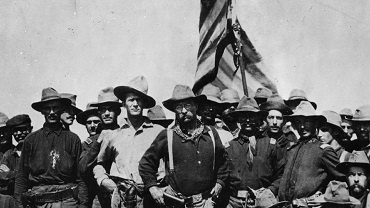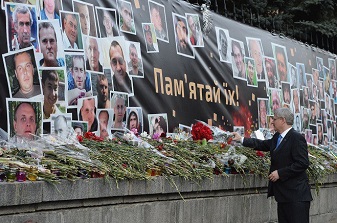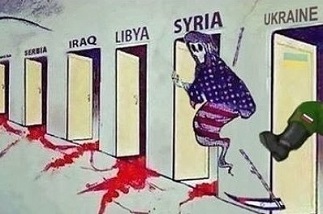Three Who Made A War

Satisfying A National Appetite For War: Before he became the 26th
president, Theodore Roosevelt (center) led the men of the 1st Cavalry
Volunteers, known as the "Rough Riders," on San Juan Hill during
the Spanish-American War in 1898. (Hulton Archive/Getty Archive)
The Spanish-American War was caused by three people: Teddy Roosevelt, Henry Cabot Lodge, and William Randolph Hearst. The war, which killed a number of Spaniards and Americans, including some prominent Harvard “Swells,” was based entirely on lies and machinations of these three men and served no purpose other than their personal needs. Princeton University historian Evan Thomas calls these three monsters The War Lovers.
Hearst needed a war to build his newspaper circulation. Roosevelt needed a war to
sate his blood-lust and desire for military glory. Lodge needed a war to reinvigorate American manhood and to enlist American manhood in his “Large Policy” of American Empire. Between them, thanks to the ignorance and stupidity of the American people, they pulled it off.
Their adversary was Speaker of the House, Thomas Brackett Reed, “the Czar,” the most powerful politician in Washington. Reed, an honest and incorruptible politician, saw Lodge’s policy of “American exceptionalism” as naked imperialism that stood in total opposition and in great danger to American purposes. Reed saw Roosevelt’s war lust as a diversion of national purpose from the reconstruction of an economy that increasingly served a shrinking minority at the expense of the American people. But Hearst, Roosevelt, and Lodge made “peace” an epithet. The American people, whose gullibility is never-ending, were captivated by war-lust. Reed lost confidence in the American people whom he so well served. Reed could find no moral purpose in pushing the country toward war over nothing but fake news reports by “yellow journalism.”


























